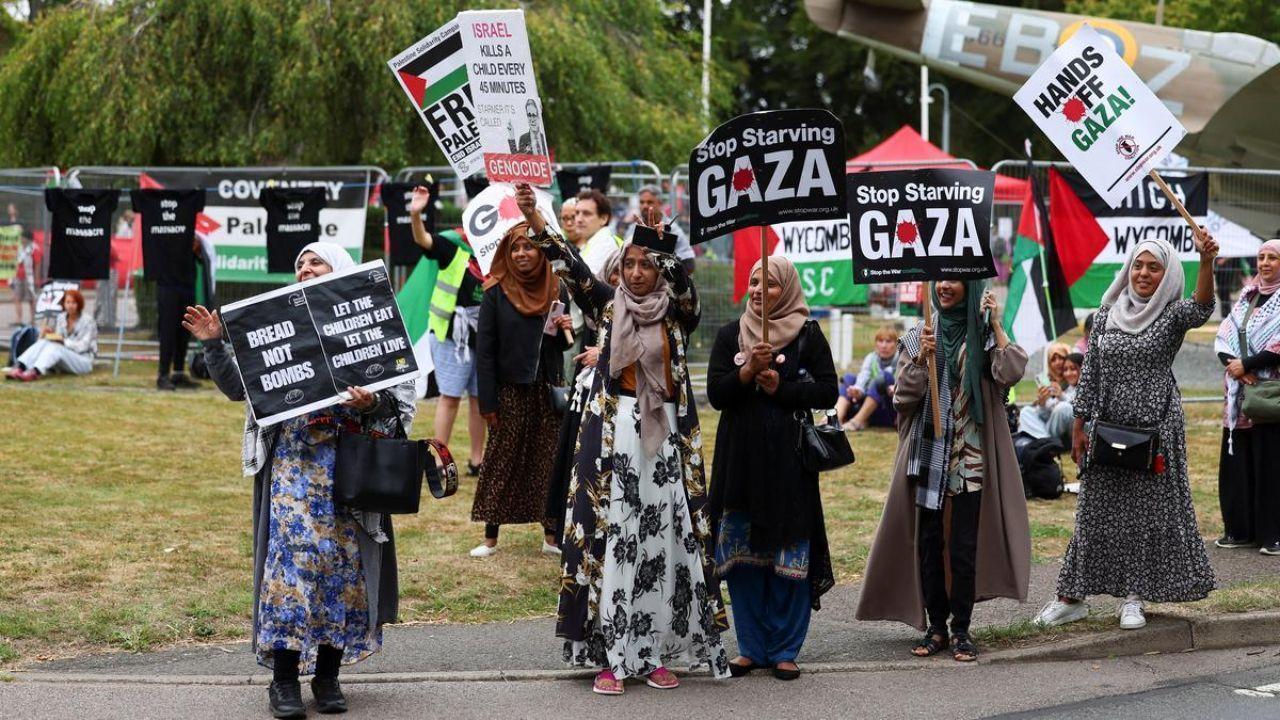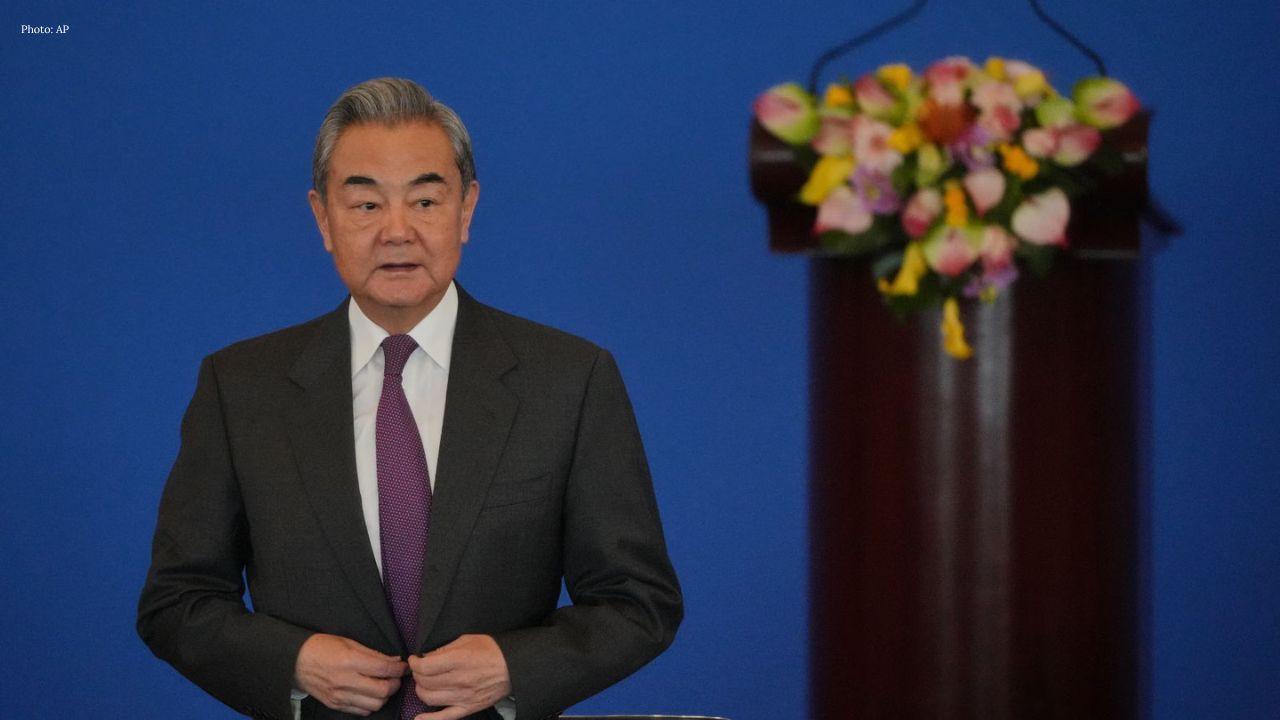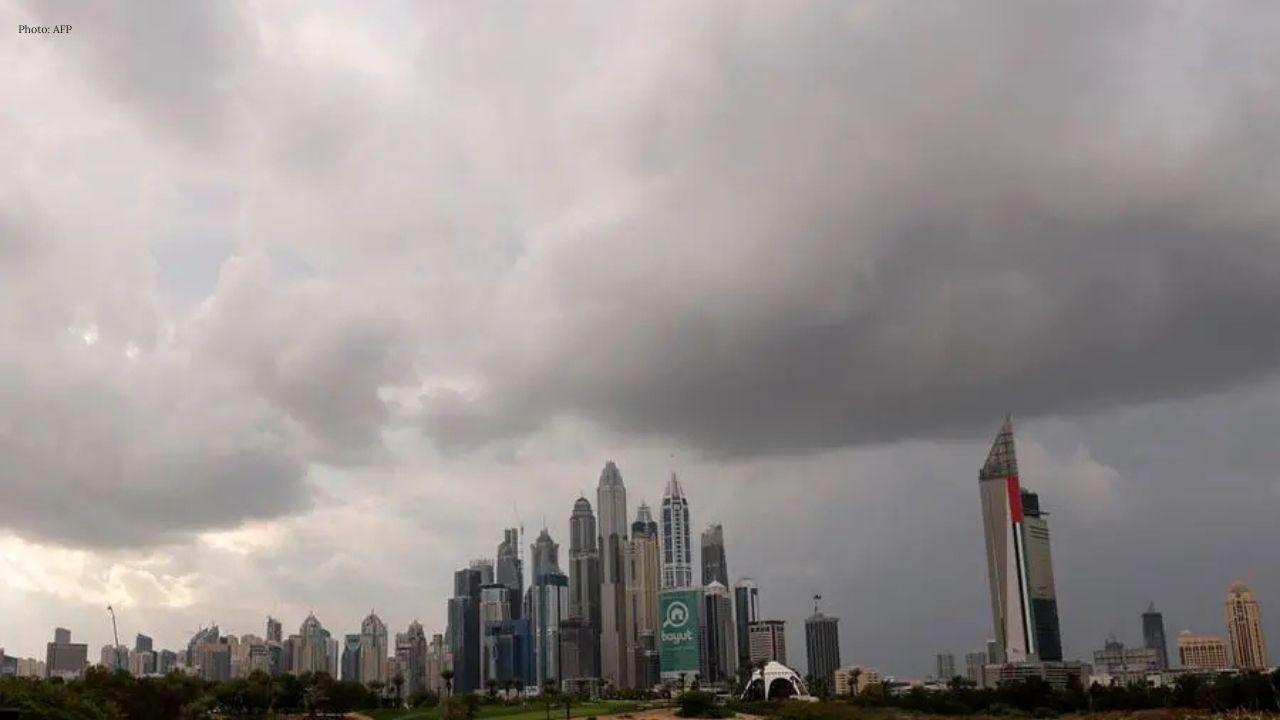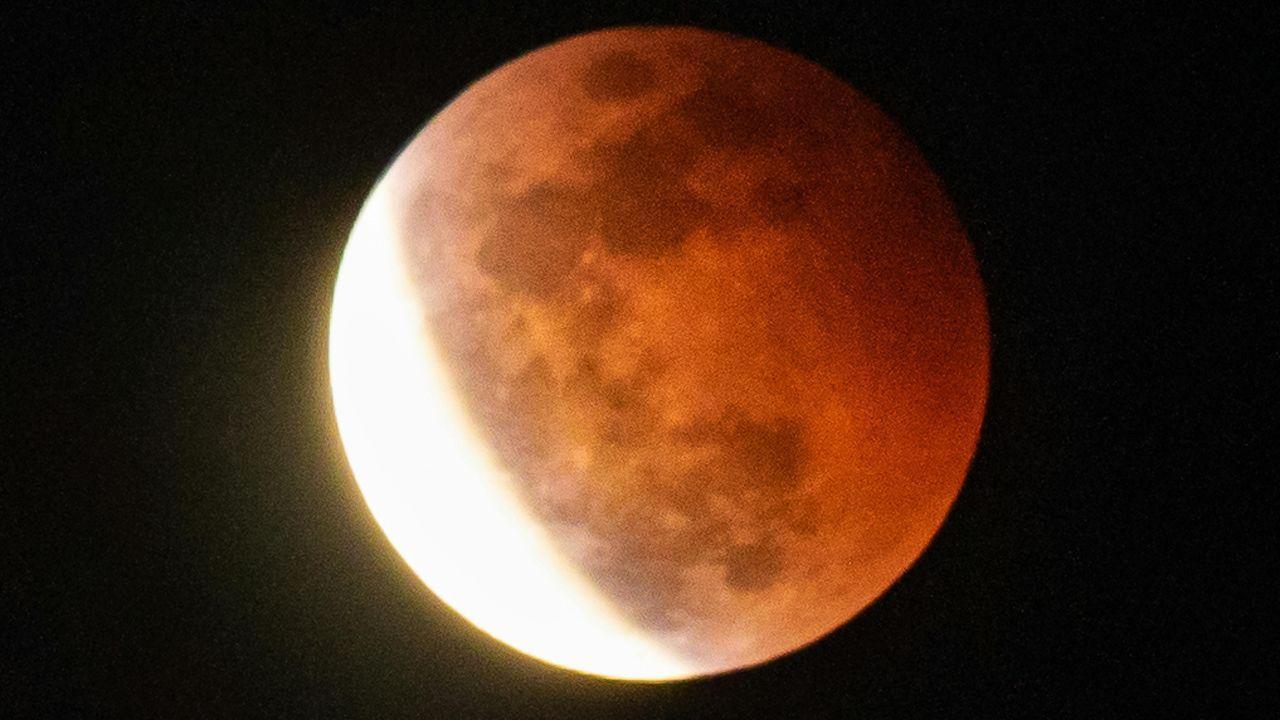You have not yet added any article to your bookmarks!

Join 10k+ people to get notified about new posts, news and tips.
Do not worry we don't spam!

Post by : Jyoti Gupta
Photo:Reuters
The United States has announced that it will temporarily stop issuing visitor visas for individuals from Gaza while it reviews its visa program for Palestinians. The move, confirmed on Saturday, August 16, 2025, comes during an ongoing war in Gaza and follows heated political pressure from some American lawmakers and far-right activists.
U.S. Suspends Gaza Visas
According to officials, the State Department has paused the approval of new visitor visas for people from Gaza. These are generally B1/B2 visas, which allow foreign nationals to travel to the United States for short stays, including medical treatment. The department explained that it is conducting what it called a “full and thorough review” of the system to ensure national security and to assess recent visa activity.
Officials did say that a “small number” of temporary medical-humanitarian visas had been granted in recent days, but they did not give an exact figure. Data available on the department’s monthly reports shows that the U.S. has issued more than 3,800 of these visitor visas to people holding Palestinian Authority travel documents in 2025 alone. That includes 640 visas in May, many of which were reportedly linked to Palestinians seeking urgent medical treatment.
Political Pressure and Activist Outcry
The sudden suspension followed a wave of criticism on American social media after Laura Loomer, a far-right activist and outspoken supporter of former President Donald Trump, claimed online that Palestinians described as “refugees” had entered the U.S. this month.
Her post quickly triggered outrage among some Republican lawmakers. Congressman Chip Roy of Texas announced he would demand answers from the administration, while Representative Randy Fine of Florida labeled the issue a “national security risk.” Both argued that the Biden administration should not be letting Palestinians from Gaza into the United States while the conflict with Israel continues.
This criticism pushed the visa program into the national spotlight, adding fuel to a wider debate inside the U.S. about immigration, humanitarian assistance, and the country’s role in the Middle East crisis.
The Ongoing War in Gaza
The background to this decision lies in the devastating war that began on October 7, 2023. On that day, Hamas militants launched a deadly attack on Israel, killing about 1,200 people and taking 251 hostages, according to Israeli figures. The assault led to Israel’s ongoing military campaign against Hamas in Gaza, now nearly two years old.
The humanitarian cost has been staggering. Health officials in Gaza say more than 61,000 Palestinians have been killed since the war began, while entire neighborhoods have been destroyed. Hospitals are overwhelmed, and international aid groups warn of a collapse in food, water, and medical supply chains. Millions of Palestinians remain trapped in the enclave, unable to leave.
Questions About Palestinian Resettlement
While the U.S. has taken some humanitarian steps, such as granting limited visas for urgent medical needs, it has not announced any plan to accept displaced Palestinians in large numbers. In fact, American officials have emphasized that no formal refugee resettlement program exists for people from Gaza at this time.
At the same time, discussions are taking place elsewhere. Sources familiar with regional diplomacy revealed that South Sudan and Israel are in talks about a possible plan to resettle some Palestinians outside Gaza. These reports remain unconfirmed and controversial, raising questions about whether such moves would amount to forced displacement or a long-term political settlement.
Israel’s Moves and the Palestinian State Debate
Adding to the tension, Israel’s Finance Minister Bezalel Smotrich recently approved new settlement projects in the West Bank. He openly declared that these steps were meant to “bury” the idea of a future Palestinian state. His announcement underscores Israel’s current right-wing government stance, which has grown increasingly firm in rejecting Palestinian statehood.
The U.S. decision on visas, although officially about internal review and security, fits into this larger picture of uncertainty about the Palestinians’ future. Critics argue that denying entry to Gazans who might seek safety or medical care sends a political message that aligns with those who want to limit Palestinian mobility and rights. Supporters of the visa halt, however, insist it is necessary to prevent security risks and ensure that no militants enter the United States disguised as refugees.
Why Is There Still No Palestinian State?
The visa controversy has reopened an old but central question: Why, after decades of negotiations, does Palestine still lack statehood? For many Palestinians, the visa suspension is another reminder that they remain stateless, often treated as outsiders even when seeking urgent humanitarian relief. For Israelis, the fear of renewed attacks and the trauma of October 7 has deepened resistance to recognizing a Palestinian state.
The issue of visas, therefore, cannot be separated from the bigger debate over sovereignty, rights, and recognition. Each step taken by Washington or Tel Aviv feeds into the regional and international battle over the legitimacy of Palestinian claims to independence.
A Growing Diplomatic Challenge
The United States now faces a balancing act. On one hand, it is under pressure from domestic critics to tighten immigration rules, especially for people from conflict zones. On the other hand, it must also consider its role as a global power that has long presented itself as a supporter of humanitarian values.
Halting visas may satisfy those demanding stricter security, but it could also harm America’s reputation in the Middle East, where many see Palestinians as victims of an overwhelming war. It also risks being read as a political signal at a time when Israel is moving closer to permanent annexation of parts of the West Bank.
For Palestinians in Gaza who need life-saving medical treatment, the halt represents yet another obstacle. For their families, it is a devastating blow — one that may cost lives if patients are unable to travel abroad for surgeries or advanced care that Gaza hospitals cannot provide.
The suspension of U.S. visitor visas for Gaza residents is more than just a bureaucratic decision. It is tied to the larger questions of war, security, politics, and the unresolved struggle for Palestinian statehood. As the conflict grinds on with no clear end in sight, every move by Washington and Tel Aviv is watched closely by the region and the world. Whether the visa program resumes soon or remains frozen will depend not just on internal U.S. reviews but also on how the political winds shift in both America and the Middle East.










China Ousts Three Retired Generals from Top Political Advisory Body
CPPCC ousts retired PLA generals ahead of annual Two Sessions as broader anti‑corruption military sh

Japan Jobless Rate Rises to 2.7%
Japan sees first increase in jobless rate in five months as voluntary quits rise and job openings sl

Strong 6.1-Magnitude Earthquake Shakes Indonesia’s Sumatra Island
Tremors felt across region no immediate reports of damage or casualties as authorities monitor seism

Rizwan Sajan Reaffirms Trust in UAE’s Safety and Growth
Danube Group Chairman Rizwan Sajan assures residents and expatriates of safety in UAE, highlighting

India Witnesses Chandra Grahan Blood Moon Visible in Parts of World
Skywatchers observe partial eclipse in India as total ‘Blood Moon’ visible across North America Aust

14 Pakistan Players Shortlisted for The Hundred 2026
ECB reiterates nationality will not influence selections as Haris Rauf and Shaheen Afridi headline P